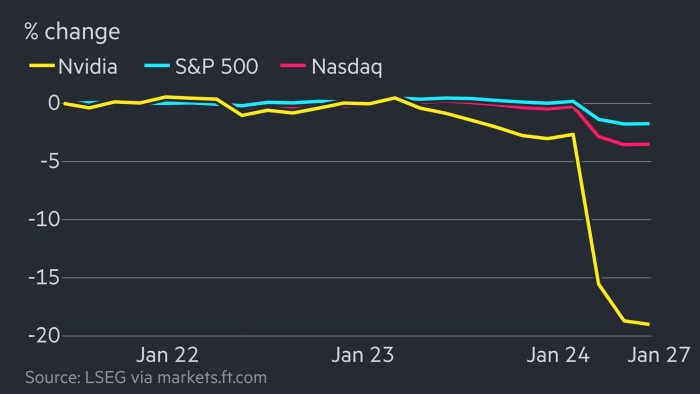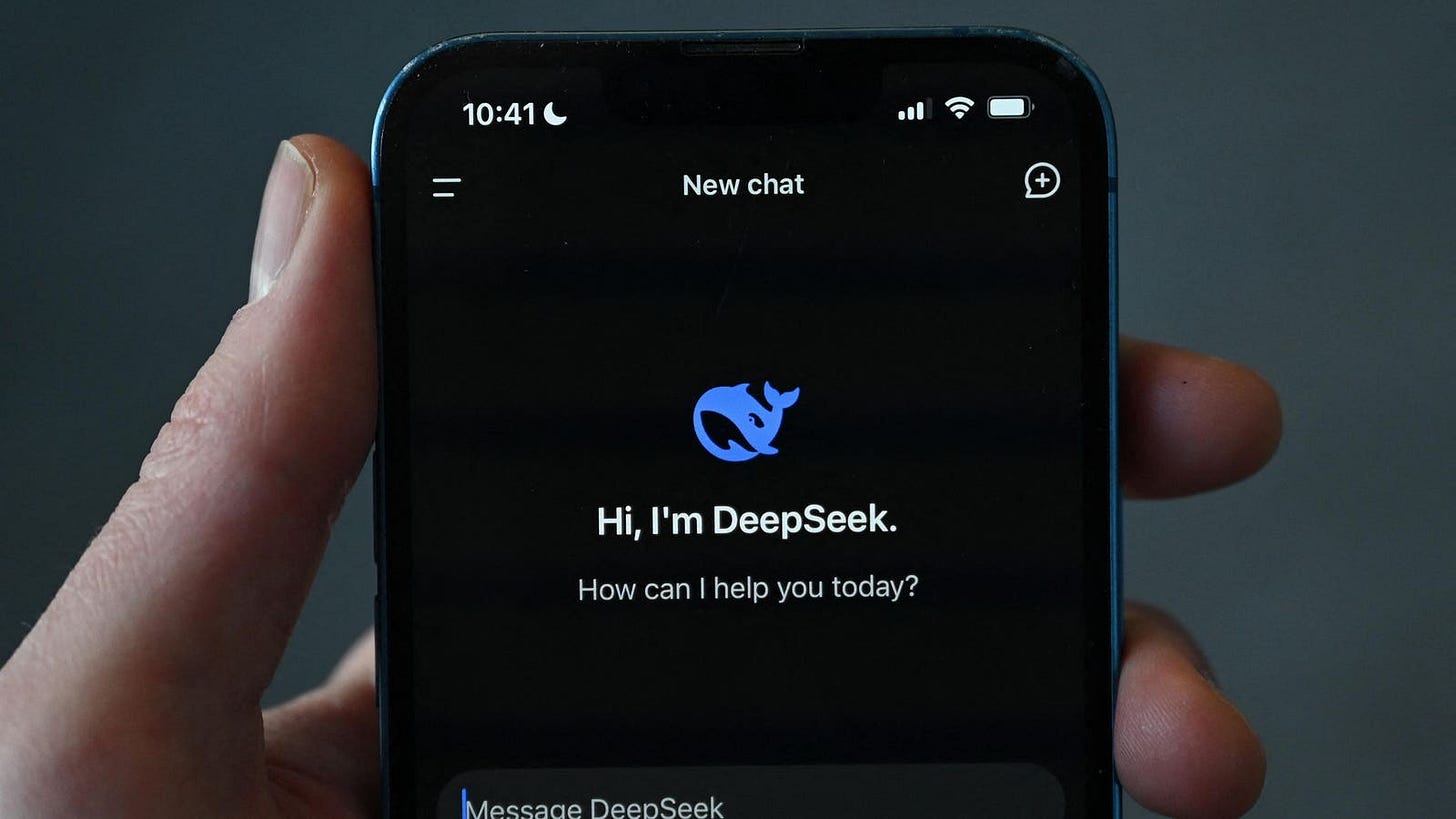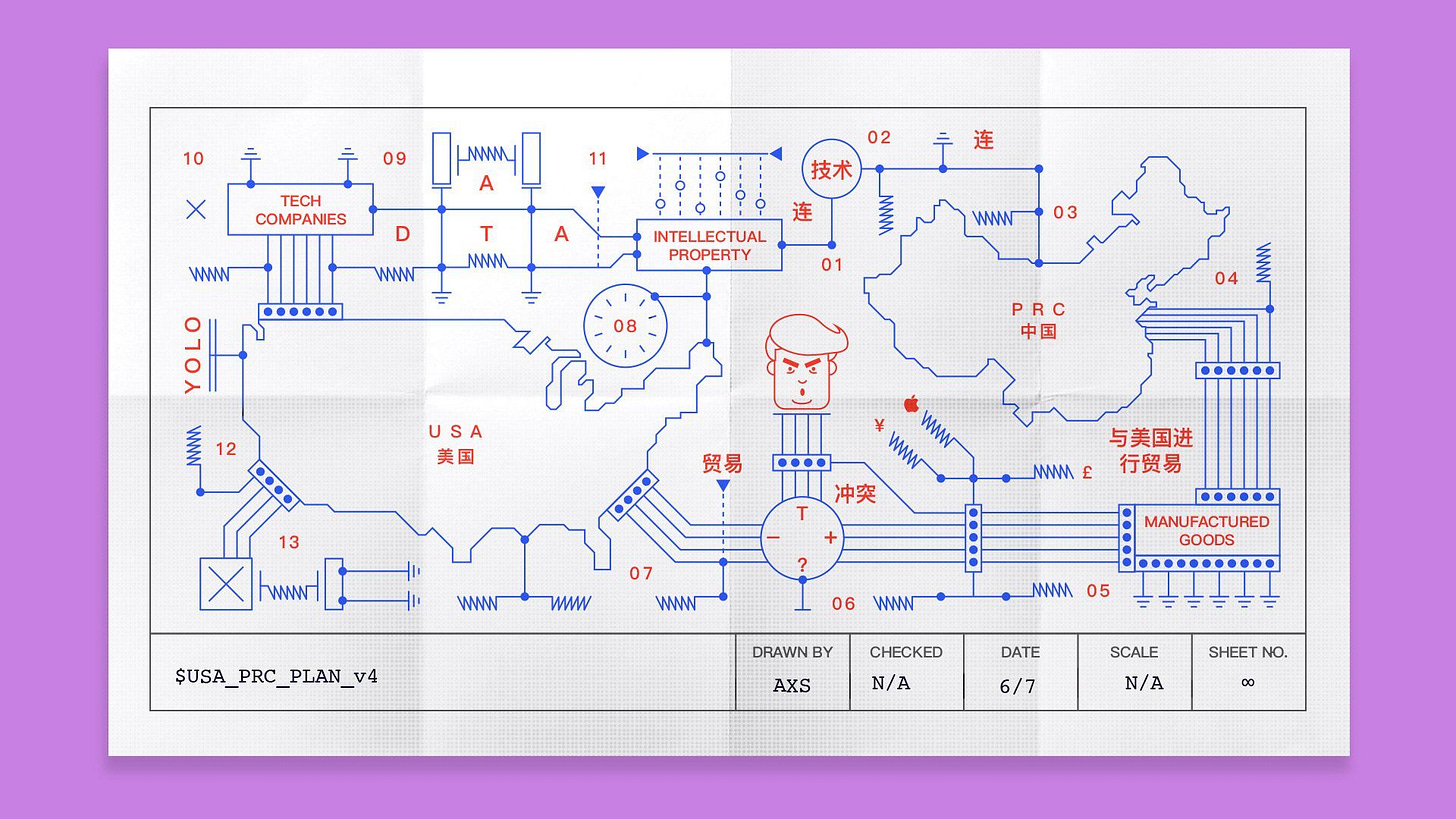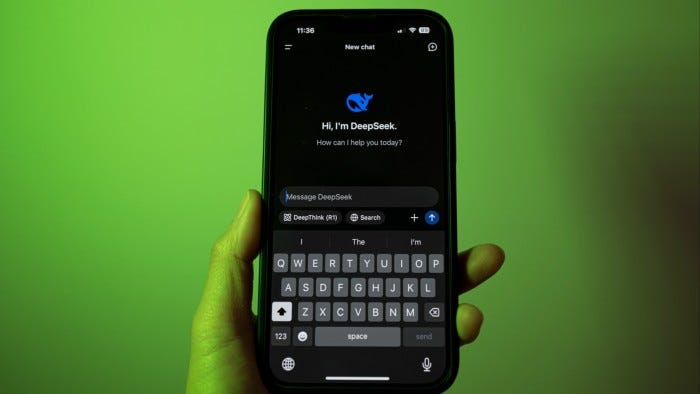AI: Seeking Deeper Answers on DeepSeek. RTZ #614
...core technical innovations accelerate AI Tech Wave, despite tech market volatility & China backdrop
“Who indeed?”
DeepSeek, the “made in China” AI company that has taken the AI world by storm in recent days, is driving this question worldwide the past few days. And led to a broad and deep tech/semiconductor downdraft, including an almost 17% drop in Nvidia. Yes, that Nvidia, that’s been the poster child for the LLM AI ‘gold rush’.
Also, Nvidia, OpenAI and others are responding directly to DeepSeek’s open source innovations, generally calling them good for the industry. Leading US AI companies like Perplexity have already deployed DeepSeek on US servers, so as to reduce fears of user data going to China. Their founder/CEO Aravind Srinivas has been tirelessly proactive in explaining why DeepSeek is not a trojan horse from China.
For now, everyone around this AI Tech Wave, including the big tech companies, the AI engineers, the investors, the governments, the regulators, the media and mainstream users at large, are actively asking their search engines and chatbots: “Who and What is DeepSeek?”
And the two follow up broad questions: “What does it mean for the big multi-hundred billion dollar AI capex binge in the US?” and “What does it mean for the US’s abillity to curb China via AI tech export curbs, if a Chinese company can ‘beat’ US AI companies at it own game?” And seemingly do FAR MORE, with FAR LESS, as I discussed this weekend.
These core questions have been asked in many different ways in scores of media articles since this weekend, along with good, deep technical and strategic analysis of the implications. Recommend some of the key ones here and here. And this interview with the founder Liang Wenfeng here.
Axios summarizes the core concerns in “Stunning breakthroughs from China's DeepSeek AI alarm U.S. rivals”:
“Breakthroughs from Chinese AI startup DeepSeek have stunned Silicon Valley and could bring turbulence to Wall Street, as they were accomplished at a fraction of what the U.S. giants are spending and despite export bans on top-of-the-line chips.”
I’ve long highlighted the potential unintended consequences of proactrively curbing China on AI Tech, and that China would ‘Find a Way”:
“Why it matters: China's rapid advances suggest America's strategy of withholding technology from China might just be speeding up the evolution of its rival's AI knowhow.”
And the expected questions for the big tech players here:
“DeepSeek's rise is alarming the likes of Meta, which announced Friday that it plans $60 billion-$65 billion in capital investment this year as it scales up its own AI projects.”
“But it could potentially also be bad news for Nvidia, which designs the world's most advanced AI chips, because DeepSeek is proving that rapid advances are possible even with fewer and less sophisticated chips.”
And the company continues to roll on, releasing multimodal LLMs today, continuing its string of doing more with less:
“Driving the news: DeepSeek hit No. 1 on Apple's App Store a week after the Jan. 20 release of its R1 model, which works along similar lines to OpenAI's o1.”
“Presented with a complex challenge, it takes time to consider alternate approaches before picking the best solution — and it explains its chain of reasoning to users. These "reasoning" models are especially good at coding and math.”
“Just last month another DeepSeek model, v3, stunned AI experts by providing performance comparable to OpenAI's and Anthropic's most advanced publicly available general models, as Axios reported.”
I talked about that development in this video podcast then.
Axios of course answers the question “Who are these guys?”
“DeepSeek spun out of a Chinese hedge-fund firm two years ago, hired ambitious young AI scientists, and set them to figure out more efficient ways to develop models, per Wired, and they focused on basic research rather than consumer product development.”
And of course, they did it, because of the curbs and restrictions:
“Scarcity drives innovation, China has some great AI minds at work, and the U.S. might need to rethink its strategy.”
In these early days of this AI Tech Wave, where the basic underlying technologies are being invented and reinvented, what DeepSeek has done, building amazing things due to constraints, is something tech companies have done for decades across tech waves. Bill Gates is famous for his innovations along these lines in the early days of Microsoft.
As Steven Sinofsky, a senior Microsoft executive from those days, put it this way on DeepSeek:
“DeepSeek was certain to happen. The only unknown was who was going to do it. The choices were a startup or someone outside the current center of leadership and innovation in AI, which is mostly in the US clustered around trillion dollar companies. It turned out to be a group in China, which for many (me too) is unfortunate.”
“But again, it absolutely was going to happen. The next question is will the US makers see this with clarity.”
That this happened at a company out of China, is in my view a coincidence, and not necessarily unfortunate, in that it provides a mini-Sputnik moment in this global AI innovation race. Especially since the tech business is a global business today, unlike in the earlier tech waves.
I agree with Ben Thompson of Stratechery’s pithy take here:
“That leaves America, and a choice we have to make. We could, for very logical reasons, double down on defensive measures, like massively expanding the chip ban and imposing a permission-based regulatory regime on chips and semiconductor equipment that mirrors the E.U.’s approach to tech; alternatively, we could realize that we have real competition, and actually give ourself permission to compete.”
“Stop wringing our hands, stop campaigning for regulations — indeed, go the other way, and cut out all of the cruft in our companies that have nothing to do with winning. If we choose to compete we can still win, and, if we do, we will have a Chinese company to thank.”
Amen.
As I’ve argued here for a long time, way before this DeepSeek moment. This true ‘Gift’ to the AI world, at this time.
The secular innovations here by DeepSeek, especially since they’re open source, are something that will driven rapid innovation in tech companies big and small, here and abroad. They are not ‘Copies’ of US tech. but core innovations. Ones that will be ironically emulated by companies worldwide, given the open source releases to date of the technologies.
Box founder Aaron Levie explains the net positive aspects of DeepSeek here, with the core message as follows:
“Now, everyone wants to live in a binary world of winners and losers, but I don’t think it’s that simple here. The leading AI labs will incorporate the relevant lessons from DeepSeek into their models, and we’ll get cheaper and more intelligent AI."
"As a result of that, the cost of intelligence will continue to drop, and we will find even more ways to use the technology as it becomes affordable for even more use cases. If we can make AI 10X more efficient today, it’s exceedingly obvious we will have 100X more use for it in 5 years from now, more than making up for the efficiency gains. Making demand for GPUs and data centers bigger than ever."
Good summary.
Despite the financial volatility, the broader picture is that DeepSeek benefits both AI tech incumbents and startups going forward, in these nascent days of the industry. Stay tuned.
(NOTE: The discussions here are for information purposes only, and not meant as investment advice at any time. Thanks for joining us here)










